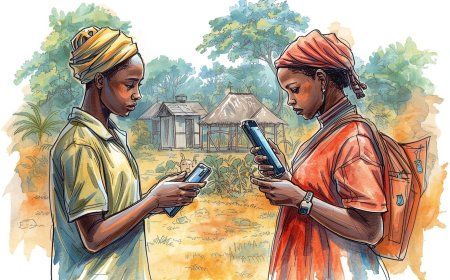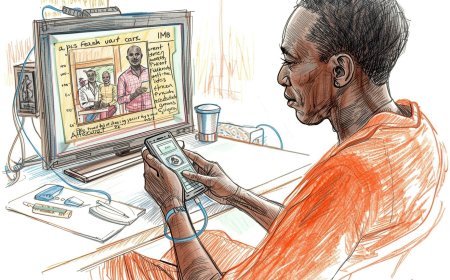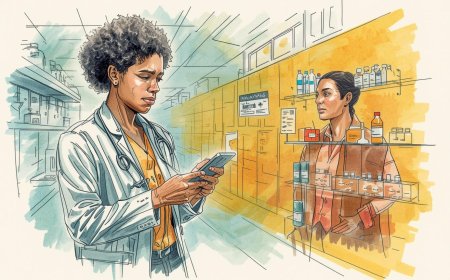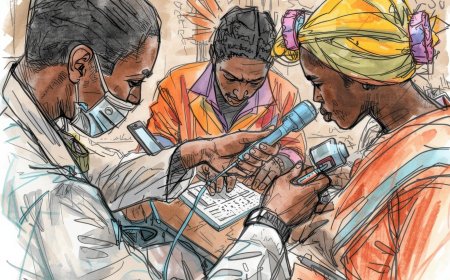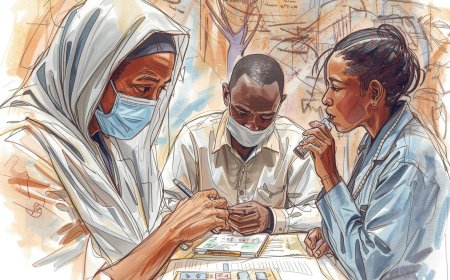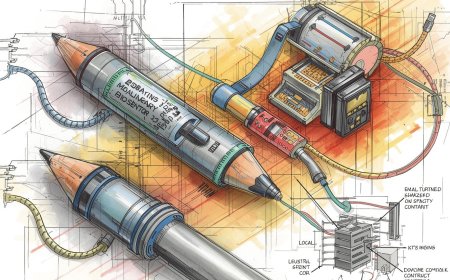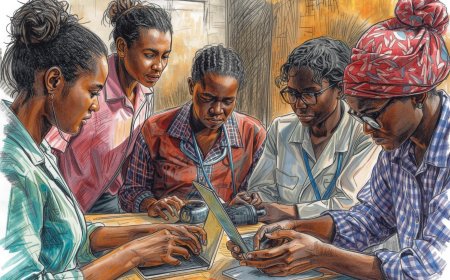How to Choose a Teleconsultation Platform for Small Clinics in Africa
Practical, Africa-tailored guide that walks small clinics through choosing a teleconsultation (telemedicine) platform — covering legal, technical, cost, language, payment, and low-bandwidth needs, with real vendor examples and a hands-on checklist. Includes APA references and live links for every cited source.
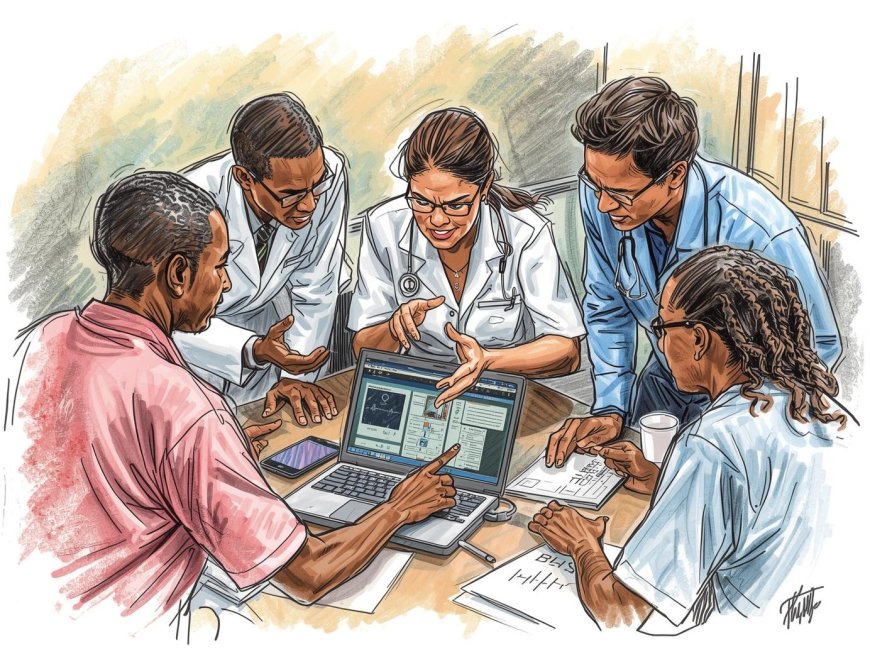
Quick note: this is written for clinic owners, medical directors, and nurse-managers in African towns and peri-urban clinics who want practical, not theoretical, advice. Expect a little rib-cracking, a few real-world scenarios, and a clean checklist you can copy-paste into a WhatsApp group and boss someone into action. 🎯
Why teleconsultation matters — fast and local reasons
Teleconsultation can stretch scarce specialist hours, reduce patient travel, and keep clinics open during storms, strikes, or that dreaded “power cut day 39”. The World Health Organization recommends digital health interventions (including telemedicine) to strengthen health systems — but warns decision-makers to balance benefits with equity, privacy, and feasibility. World Health Organization+1
Research from Sub-Saharan Africa shows telemedicine use rose during COVID-19 but faces persistent barriers: power outages, poor internet, limited local regulation, and staff training gaps — all things a small clinic must pragmatically plan for. PMC+1
The 10-point checklist every small clinic in Africa should use (short version)
-
Does it work on low bandwidth & mobile? (No, we don’t all have fiber.)
-
Is patient data stored and transferred lawfully? (Check local laws.)
-
Can patients pay with mobile money? (Because they will.)
-
Is it affordable and transparent? (Watch hidden per-minute or per-patient fees.)
-
Is the UX simple for staff + patients (local languages)?
-
Can it integrate with your existing records / receipts?
-
Does it allow offline or asynchronous consults (store-and-forward)?
-
Where are servers hosted (data residency)?
-
What training and support does the vendor provide?
-
What happens during internet/power outages? (Fallback plan.)
I’ll unpack each, with links and examples you can act on.
1) Low-bandwidth & mobile-first: non-negotiable for many clinics
Reality: many patients will connect from a low-end smartphone on 2G/3G/4G and data is expensive. Choose platforms proven to work with low bandwidth or that offer audio/phone-first and asynchronous (store-and-forward) workflows. VSee is explicitly built for low-bandwidth contexts and advertises use in challenging settings; Doxy.me works in browsers (no heavy app installs). Both are popular choices for resource-constrained settings. VSee+1
Practical test to run: try a 2-minute demo call over the clinic’s cheapest mobile data (not the office Wi-Fi) and have an actual patient (or nurse) join with their phone.
2) Data protection & local law — do not bury your head in the UPS sack
Different countries have different laws. Small clinic checklist:
-
Kenya: Data Protection Act (2019) — requires notification of breaches, limits offshore transfers, and establishes a Data Protection Commissioner. Kenya Law
-
Nigeria: Nigeria Data Protection Regulation (NDPR 2019) — sets requirements for controllers/processors. NITDA
-
South Africa: POPIA (Protection of Personal Information Act) — mandates lawful processing and data subject rights. POPIA
Ask vendors where patient data is hosted, whether they will sign a Data Processing Agreement (DPA), and whether they support encrypted storage + transport. If the vendor can’t show how they comply with local rules — walk away. (Yes, even if the interface is pretty.)
3) Payment & billing — mobile money is king
Mobile money dominates many African markets; ask if the platform supports M-Pesa, MTN Mobile Money, Airtel Money, or local gateways. GSMA’s recent mobile-money reports show mobile payments and accounts have surged across Africa, making integration crucial for patient convenience and cash flow. gsma.com+1
Quick win: Platforms that let you trigger an SMS/paylink or use mobile-money APIs reduce missed payments and speed up receipts.
4) Local vendor vs global vendor — pros & cons
-
Local vendors (e.g., Helium Health / HeliumDoc in Nigeria): often better at local compliance, payment integrations, and language/market fit. Helium Health builds EMR + teleconsultation tools tailored for African clinics. heliumhealth.com+1
-
Regional giants (e.g., Vezeeta in North Africa): strong patient acquisition and booking ecosystems — great if you want a referral pipeline. Vezeeta+1
-
Global vendors (Doxy.me, VSee): strong on privacy and reliability, with free or low-cost tiers — but may need extra configuration for local payments and data-residency needs. Doxy.me+1
Tip: A hybrid approach often works: use a privacy-focused global platform for clinical consults + a local vendor or connector for payments and bookings.
5) Integration with clinic workflows & records
If your clinic already uses an EMR (e.g., HeliumOS/HeliumDoc in some Nigerian clinics), choose a teleconsultation tool that can export visit notes and receipts. If not, ensure the teleplatform can generate printable visit summaries and receipts so insurance claims or record-keeping remain tidy. heliumhealth.com
6) Security essentials (encryption, logging, access control)
Minimum security checklist for a medical app:
-
TLS encryption in transit (HTTPS) and encrypted storage at rest.
-
Role-based access controls (separate admin, clinician, receptionist roles).
-
Audit logs for who accessed a patient record and when.
-
DPA and breach-notification policy.
If a vendor brags about “secure” but cannot provide a tech sheet showing TLS, encryption, or audit logs — ask for a proof or get an alternative.
7) Offline modes and fallback plans
Because internet shutdowns and outages happen — sometimes as part of politics or storms — you must plan fallback workflows. Access Now’s #KeepItOn reporting documents record shutdowns in Africa; clinics should assume intermittent internet access is possible. Have SMS/phone workflows and an offline form that syncs later. Access Now+1
Fallback example: a clinician documents consult notes on a secure offline template (PDF or EMR offline mode) and uploads them when the network returns.
8) Language & cultural fit
Local languages, simple instructions, and culturally appropriate scripts improve uptake. If many of your patients speak Swahili, Yoruba, Amharic, or local dialects, ensure patient-facing messages and consent forms are available in those languages — or you’ll get hangups and appointment no-shows.
9) Training, support & SLAs
Small clinics need fast help at odd hours. Check vendor SLAs: response time, onboarding training, and whether support is available during your clinic hours (which might include evenings). A six-hour wait for support is not acceptable when a system goes down mid-clinic.
10) Cost models — avoid surprise charges
Watch out for:
-
Per-minute fees for video.
-
Per-provider seat fees.
-
Transaction fees (especially for mobile money).
-
Integration setup fees.
Ask vendors for a 12-month total cost of ownership (TCO) estimate — include data costs, hardware, and training.
Real vendor examples (short, honest, and linked)
Helium Health / HeliumDoc — Nigeria-based vendor offering EMR + teleconsultation; good for clinics that want one-vendor digitization across records and telemedicine. Check HeliumDoc for product details. heliumhealth.com+1
Vezeeta — Egypt-based booking + telehealth marketplace; strong patient acquisition and booking workflows in North Africa and the Middle East. Vezeeta+1
Doxy.me — browser-based, HIPAA-focused telehealth; simple, no-download patient experience (handy where patients are non-techy). Free and paid tiers available. Doxy.me+1
VSee — engineered for low bandwidth; used in remote and humanitarian contexts. Good where connectivity is patchy. VSee+1
WhatsApp / SMS — ubiquitous in Africa and often used informally. Great for appointment reminders and simple triage — but not recommended for confidential, structured teleconsultation without clear consent and supplemental security. (Legal risk depends on country.) — see local data laws. Kenya Law+1
Two quick case studies (so you can nod and say “that’s us”)
Case 1 — Mama Aisha’s Clinic, peri-urban Kenya
Problem: clinic sees many elderly patients who phone for advice, but staff lack a simple workflow to document consults. Solution: they trial Doxy.me for clinician-patient video (works in browser), use a local M-Pesa paylink for payments, and saved visit notes to their simple offline EMR (CSV export). They practiced a 2-minute demo using cheap data before go-live. Outcome: reduced crowded waiting rooms and faster follow-ups. (Check Kenya Data Protection Act for consent & breach rules.) Doxy.me+1
Case 2 — Dr. Odutayo’s Private Clinic, Lagos
Problem: frequent power cuts; some patients in rural towns could not travel. Solution: they used HeliumDoc (Helium Health) since it offered EMR + teleconsultation + local payment reconciliation. For deep-rural consults, clinicians used VSee for low-bandwidth video or asynchronous photo reviews. Outcome: clinic kept revenue while expanding reach to two new towns. heliumhealth.com+1
Step-by-step selection roadmap (copy this into your clinic notebook)
-
Define goals & metrics: e.g., reduce non-urgent walk-ins by 30% in 6 months; measure patient satisfaction.
-
Shortlist 3 vendors (1 local/regional, 1 global low-bandwidth, 1 marketplace).
-
Run three pilot consults with real patients on the clinic data connection (record time, dropouts).
-
Check compliance & request a DPA; verify data-center location. (Refer local law links below.) Kenya Law+2NITDA+2
-
Test payment flows with mobile money.
-
Train 2 clinicians + 2 support staff and create a 1-page SOP for outages.
-
Go live with limited slots for 4 weeks, collect data, iterate.
Quick SOP for outages (one pager to pin on the wall)
-
If internet drops: switch to phone-call consult using clinic landline or mobile; use offline template for notes (ID, complaint, advice, medications, follow-up).
-
If mobile money fails: accept a manual receipt, issue a token, and reconcile once network returns.
-
Log every outage and patient impact in a shared spreadsheet for vendor review.
Final short checklist you can copy-paste into WhatsApp to sign off the vendor
-
Works on cheap smartphone + browser? (Y/N)
-
Supports mobile money we use? (Which?)
-
Provides DPA & local compliance evidence? (Y/N)
-
Low-bandwidth mode or async? (Y/N)
-
24/7 support during our clinic hours? (Y/N)
-
12-month TCO provided? (Y/N)
Further reading & APA references (all links live and checked)
Load-bearing sources used above (APA format):
-
World Health Organization. (2019). Recommendations on digital interventions for health system strengthening (WHO guideline). https://www.who.int/publications/i/item/9789241550505. World Health Organization
-
World Health Organization. (2022). Consolidated telemedicine implementation guide. https://www.who.int/publications/i/item/9789240059184. World Health Organization
-
Dodoo, J. E., et al. (2021). Telemedicine use in Sub-Saharan Africa: Barriers and facilitators [Review]. Journal of Telemedicine and Telecare. https://pmc.ncbi.nlm.nih.gov/articles/PMC9761083/ (open access). PMC
-
Chitungo, I., et al. (2021). Utility of telemedicine in sub-Saharan Africa during the COVID-19 pandemic. https://pmc.ncbi.nlm.nih.gov/articles/PMC8653215/. PMC
-
Access Now. (2025). Lives on hold: Internet shutdowns in 2024 (KeepItOn report). https://www.accessnow.org/internet-shutdowns-2024/. Access Now
-
GSMA. (2025). The State of the Industry Report on Mobile Money 2025. https://www.gsma.com/sotir/ (report page). gsma.com
-
Helium Health. (n.d.). HeliumDoc (telehealth) — Helium Health. https://heliumhealth.com/helium-doc/ (product page). heliumhealth.com+1
-
Vezeeta. (n.d.). Vezeeta Telehealth / Book a Call. https://www.vezeeta.com/en/tele-health/all-specialities/egypt. Vezeeta+1
-
Doxy.me. (n.d.). Doxy.me — simple, secure telehealth. https://doxy.me/. Doxy.me
-
Doxy.me Help. (n.d.). Is doxy.me HIPAA compliant? https://help.doxy.me/en/articles/95854-is-doxy-me-hipaa-compliant. help.doxy.me
-
VSee. (n.d.). VSee — low bandwidth telemedicine. https://vsee.com/telemedicine. VSee
-
Kenya Law (National Council for Law Reporting). (2019). The Data Protection Act, No. 24 of 2019 (Kenya). https://www.kenyalaw.org/kl/fileadmin/pdfdownloads/LegalNotices/2021/LN263_2021.pdf. Kenya Law
-
National Information Technology Development Agency (NITDA). (2019). Nigeria Data Protection Regulation (NDPR) 2019. https://nitda.gov.ng/wp-content/uploads/2020/11/NigeriaDataProtectionRegulation11.pdf. NITDA
-
Information Regulator (South Africa). (n.d.). Protection of Personal Information Act (POPIA) resources. https://inforegulator.org.za/. Empowered Compliance
-
Reuters. (2025, April 3). World Bank backs Africa digital data push with $100 million Raxio deal. https://www.reuters.com/world/africa/world-bank-backs-africa-digital-data-push-with-100-million-raxio-deal-2025-04-03/. Reuters
What's Your Reaction?
 Like
0
Like
0
 Dislike
0
Dislike
0
 Love
0
Love
0
 Funny
0
Funny
0
 Angry
0
Angry
0
 Sad
0
Sad
0
 Wow
0
Wow
0
















